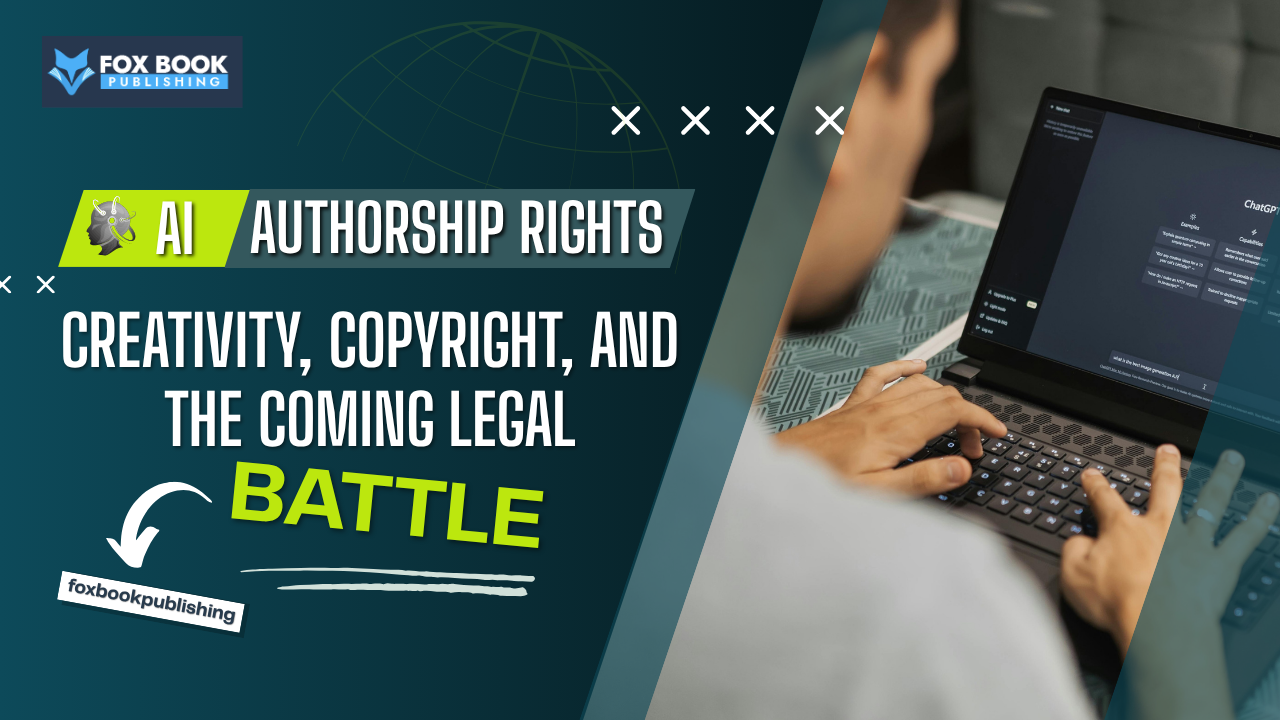Technology never waits for legislation.
Artificial intelligence can now draft prose, mimic style, and summarize decades of literature — all before lawmakers decide what “original” means.
For authors, the question isn’t whether AI will change publishing. It already has. The question is how to protect your voice inside it.
1 Training Data vs Creative Consent
Most large language models are trained on publicly available text, including books.
Authors rarely gave explicit permission. The legal system now faces a paradox: training requires reading, but reading at scale blurs into reproduction.
Courtrooms are wrestling with whether learning equals copying — a precedent that could redefine copyright itself.
2 The Ownership Puzzl
If an AI model generates text in your tone, who owns it? You, the model’s company, or no one?
Contracts from publishing houses and AI platforms increasingly include clauses covering “machine-assisted works.” Authors need to read those lines carefully; they define who collects royalties in hybrid creations.
3 Moral Rights in the Machine Age
Beyond payment lies attribution. Writers want credit even when machines assist.
Future publishing norms will likely require transparent disclosure: “Written with AI assistance.” Early adopters who disclose build trust; those who hide risk backlash once readers discover the truth.
4 AI as Collaborator, Not Competitor
Used responsibly, AI expands capacity: generating outlines, summarizing research, or producing multilingual drafts.
The creative spark still belongs to humans — structure, emotion, originality. The smartest authors treat AI like an intern: helpful, fast, but directionless without guidance.
5 Legal Trends to Watch
- Fair Use Tests: Courts in the US and EU are defining whether machine learning counts as transformative.
- Opt-Out Registries: Several publishers are building databases of authors who forbid their work from training sets.
- New Licensing Markets: Some startups now pay creators for limited-term AI training rights — a future revenue stream, not a threat.
6 Cultural Implications
Readers crave authenticity more than perfection.
If machines flood marketplaces with synthetic content, human stories become premium experiences.
Ironically, AI might make genuine voice more valuable than ever.
7 Protective Steps for Authors Now
- Register copyrights formally, not just rely on timestamps.
- Use plagiarism and AI-content trackers to monitor misuse.
- Retain full rights in publishing contracts for derivative or machine-trained uses.
- Archive drafts and metadata as proof of authorship.
8 The Publisher’s Responsibility
Platforms must evolve transparency standards. Labeling AI-generated material protects reader trust and shields honest authors from market dilution.
Regulation will catch up, but ethical self-governance will define reputations first.
9 Long-Term Outlook
History repeats: photography didn’t kill painting; it redefined it.
AI will force writing to clarify its human advantage — emotional truth, moral complexity, and lived experience.
The next literary renaissance might emerge precisely because machines made imitation cheap.
10 A Future of Co-Creation
Tomorrow’s authors will blend creativity with computation — storytelling guided by empathy and informed by data. Protecting rights while embracing progress will decide who thrives in that new era.
FoxBookPublishing Support and Free Consultancy
Technology should empower, not erase, creativity.
FoxBookPublishing guides modern authors through the transition with AI-safe publishing workflows, rights-aware contracts, metadata protection, creative strategy, and marketing systems that keep authenticity profitable.
Book a free discovery call to assess your AI readiness or choose a paid consultancy session for tailored legal + creative strategy.
Explore the future safely at FoxBookPublishing.com.

